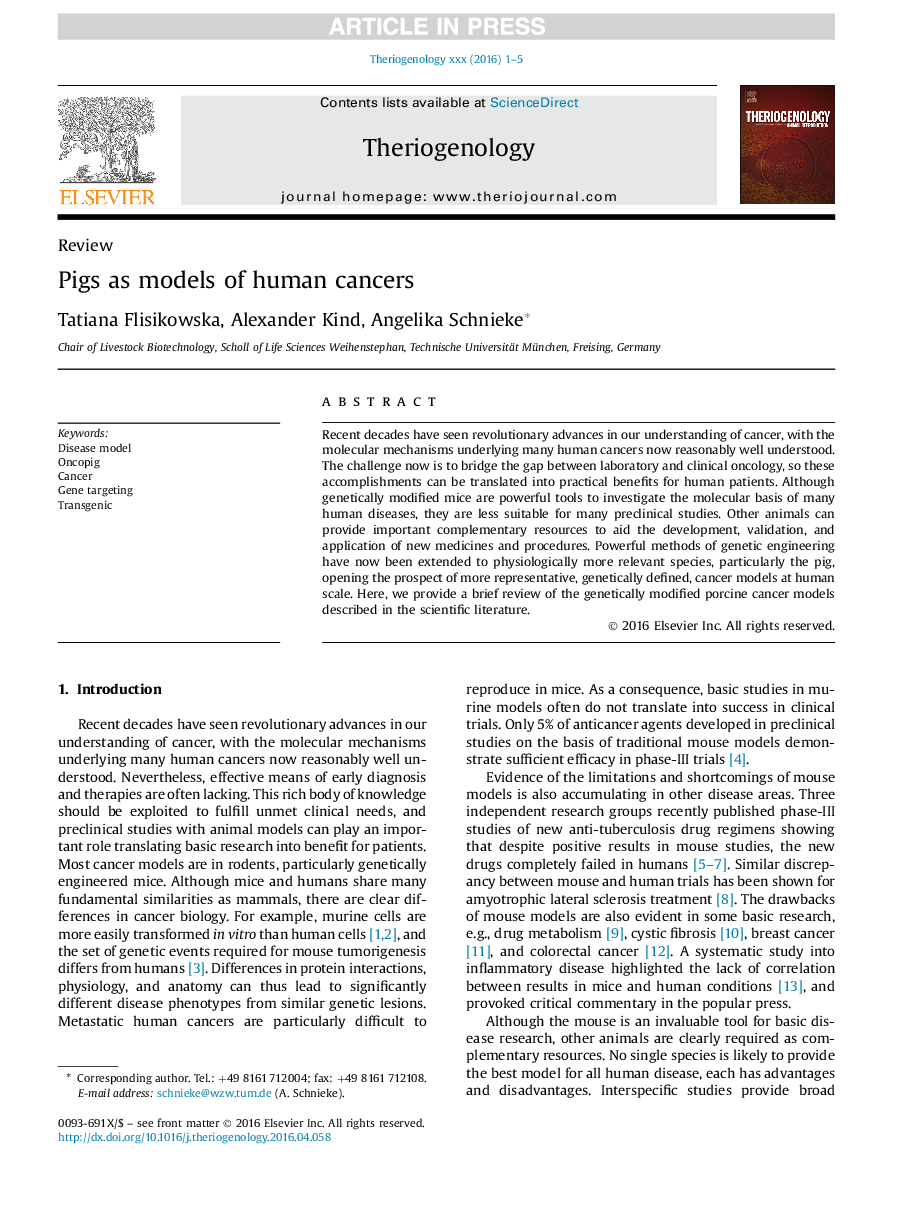| Article ID | Journal | Published Year | Pages | File Type |
|---|---|---|---|---|
| 10891643 | Theriogenology | 2016 | 5 Pages |
Abstract
Recent decades have seen revolutionary advances in our understanding of cancer, with the molecular mechanisms underlying many human cancers now reasonably well understood. The challenge now is to bridge the gap between laboratory and clinical oncology, so these accomplishments can be translated into practical benefits for human patients. Although genetically modified mice are powerful tools to investigate the molecular basis of many human diseases, they are less suitable for many preclinical studies. Other animals can provide important complementary resources to aid the development, validation, and application of new medicines and procedures. Powerful methods of genetic engineering have now been extended to physiologically more relevant species, particularly the pig, opening the prospect of more representative, genetically defined, cancer models at human scale. Here, we provide a brief review of the genetically modified porcine cancer models described in the scientific literature.
Related Topics
Life Sciences
Agricultural and Biological Sciences
Animal Science and Zoology
Authors
Tatiana Flisikowska, Alexander Kind, Angelika Schnieke,
